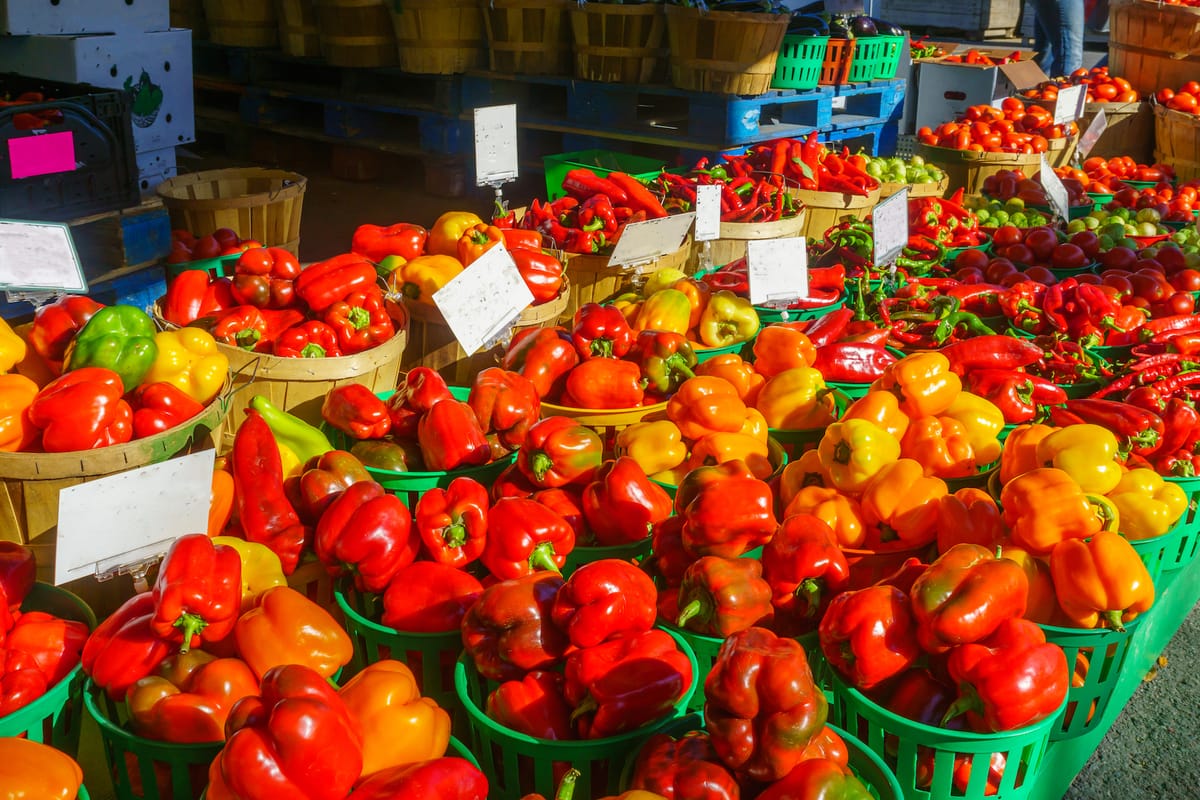

Understanding Inflammation in Seniors
Inflammation is a natural response of the body to injury or infection, but chronic inflammation can lead to various health issues, particularly in seniors. As we age, our bodies may become more susceptible to inflammatory conditions, making it crucial to understand which foods might exacerbate this problem.
Inflammation can manifest in various ways, including joint pain, swelling, and general discomfort. For seniors, managing inflammation through diet is a proactive way to maintain health and quality of life. This article will explore which vegetables might contribute to inflammation and how to navigate dietary choices effectively.
Vegetables That May Cause Inflammation
While vegetables are generally considered healthy, certain types can trigger inflammation in some individuals, especially seniors. Nightshade vegetables, such as tomatoes, potatoes, eggplants, and peppers, are often cited as potential culprits. These vegetables contain alkaloids, which some people believe can exacerbate inflammation.
Tomatoes, for instance, are rich in solanine, an alkaloid that might cause joint pain and inflammation in sensitive individuals. Similarly, potatoes, particularly when green or sprouted, can increase solanine levels, potentially leading to inflammatory responses. Eggplants and peppers also contain similar compounds that might affect some seniors.
It's important to note that not everyone will react to these vegetables in the same way. Some seniors might consume nightshades without any issues, while others might experience significant discomfort. Personal experimentation and consultation with a healthcare provider can help determine if these vegetables are problematic for you.
The Science Behind Inflammation and Vegetables
The link between vegetables and inflammation is rooted in the body's biochemical responses. Alkaloids in nightshade vegetables can interact with the body's immune system, potentially triggering an inflammatory response. This reaction varies from person to person, influenced by genetics, overall health, and other dietary factors.
Research suggests that the lectins found in some vegetables, like tomatoes and peppers, might also contribute to inflammation. Lectins are proteins that can bind to cell membranes, potentially causing irritation and inflammation in the gut. For seniors, whose digestive systems might be more sensitive, these effects can be more pronounced.
Understanding the science behind these reactions can help seniors make informed dietary choices. By recognizing which vegetables might trigger inflammation, individuals can tailor their diets to minimize discomfort and maintain optimal health.
Managing Your Diet to Reduce Inflammation
If you suspect that certain vegetables are causing inflammation, there are several strategies to manage your diet effectively. First, consider eliminating nightshade vegetables from your diet for a period to see if symptoms improve. This can be a helpful way to identify if these foods are the culprits.
Additionally, incorporating anti-inflammatory foods can help counteract the effects of inflammation. Foods rich in omega-3 fatty acids, such as fatty fish, flaxseeds, and walnuts, can be beneficial. Turmeric, ginger, and green leafy vegetables like spinach and kale are also known for their anti-inflammatory properties.
It's also important to maintain a balanced diet that includes a variety of nutrients. While avoiding certain vegetables, ensure you're still getting essential vitamins and minerals from other sources. Consulting with a dietitian can provide personalized guidance on managing your diet to reduce inflammation.
Alternative Vegetables and Nutritious Substitutes
If you need to avoid certain vegetables due to inflammation, there are plenty of nutritious alternatives to consider. For instance, instead of tomatoes, you might try using zucchini or squash in your recipes. These vegetables are low in alkaloids and can provide similar culinary versatility.
Instead of potatoes, consider sweet potatoes or yams, which are not nightshades and offer a rich source of vitamins and minerals. For peppers, bell peppers are generally well-tolerated, but if you're sensitive, try using carrots or celery for crunch and flavor in your dishes.
Exploring these alternatives can help you maintain a diverse and nutritious diet while minimizing the risk of inflammation. Experimenting with different vegetables can also add variety to your meals, making dietary adjustments more enjoyable and sustainable.
Long-Term Health Benefits of Managing Inflammation
Managing inflammation through dietary adjustments can have significant long-term health benefits for seniors. By reducing chronic inflammation, you can lower the risk of developing conditions such as arthritis, heart disease, and diabetes. These conditions can significantly impact quality of life, making proactive management essential.
Additionally, reducing inflammation can improve overall energy levels and mobility, allowing seniors to stay active and engaged in their daily lives. By making informed dietary choices, you can support your body's natural healing processes and maintain optimal health as you age.
It's important to approach inflammation management as a long-term strategy. Consistent dietary adjustments, combined with other healthy lifestyle choices, can lead to sustained improvements in health and well-being.
The Future of Dietary Management
As research into inflammation and diet continues to evolve, seniors can look forward to more personalized and effective dietary strategies. Advances in nutritional science may lead to better understanding of how specific foods interact with individual health profiles, allowing for more tailored dietary recommendations.
Additionally, the development of new anti-inflammatory supplements could provide additional tools for managing inflammation. By staying informed about these developments, seniors can continue to adapt their diets to support their health and well-being.
The future of dietary management holds promise for improving the quality of life for seniors. By embracing these advancements and maintaining a proactive approach to diet, individuals can effectively manage inflammation and enjoy a healthier, more active lifestyle.
Dues are $12 per year. Member benefits:
✅ Ad-Free Website Viewing
✅ Advocacy for Republican Seniors
✅ 120+ Senior Discounts
✅ Member Only Newsletters